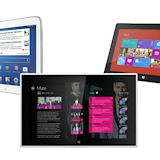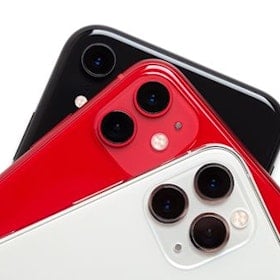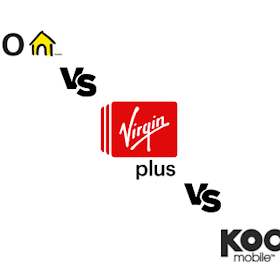 Microsoft has actually managed to impress tech gurus and tablet fans alike around the world with the announcement of its new and upcoming Microsoft Surface Tablet. Complete with 10.6 inch screen, Gorilla Glass 2 display and new VaporMG scratch-resistant casing, the Microsoft Surface tablet continued to bring out more and more new features with every successive announcement.
Microsoft has actually managed to impress tech gurus and tablet fans alike around the world with the announcement of its new and upcoming Microsoft Surface Tablet. Complete with 10.6 inch screen, Gorilla Glass 2 display and new VaporMG scratch-resistant casing, the Microsoft Surface tablet continued to bring out more and more new features with every successive announcement.
With a roughly comparable size and weight to the iPad line, the Microsoft Surface will feature a 16:9 aspect ratio on its display. This has been an increasingly common sight in the tech world for many manufacturers, excluding Apple of course. 16:9 has started seeing greater popularity because it wastes no space when displaying wide-screen movies and media by eliminating the need for letterboxing. Most televisions and computer screens today are also 16:9.
We’re also hearing that the Surface will utilize digital ink, allowing it to support text rendering to a level comparable to 600dpi – almost twice the resolution density of an iPhone 4S. It also allows for the use of a magnetic pen to act as a writing stylus. This pen will apparently come with the tablet and can attach to the top of the case.
 The case itself is constructed of something Microsoft is calling VaporMG, pronounced Vapor Mag. The MG part stands for magnesium, a key ingredient in the case’s construction. This new VaporMG technology is reportedly extremely scratch-resistant. Around the edge of the case is a thin groove through which airflow is provided for the purpose of cooling. This should hopefully mean that the Surface will not be plagued by some of the heating issues that we’ve seen in other tablets, but that is yet to be seen.
The case itself is constructed of something Microsoft is calling VaporMG, pronounced Vapor Mag. The MG part stands for magnesium, a key ingredient in the case’s construction. This new VaporMG technology is reportedly extremely scratch-resistant. Around the edge of the case is a thin groove through which airflow is provided for the purpose of cooling. This should hopefully mean that the Surface will not be plagued by some of the heating issues that we’ve seen in other tablets, but that is yet to be seen.
On the back of the case is located a built-in stand. The stand appears well designed and tucks away neatly when not in use. The inclusion of this stand means that Microsoft’s new display covers are freed up for other uses. Two covers were demonstrated, both of which sport keyboards and trackpads. The protective covers differ in their keyboard design; one is multitouch and the other offers a more traditional and tactile option.
The Touch Cover is the multitouch option and is just 3mm thick. It has a built-in accelerometer so that it deactivates when flipped around to the back, meaning no key-activation when you don’t want to use it. It also measures the amount of pressure that you are putting on it as another method of determining whether you are intentionally typing or not, meaning you can actually rest your hands on it without activating anything. As an added touch, the background of the tablet automatically changes color to match that of your Touch Cover, which is pretty nifty.
 Both the Touch Cover and the tactile cover sound like fantastic ideas and really help to reinforce that Microsoft’s approach in all of this was to create a tablet that resembles a portable PC, rather than a larger and more useful smartphone.
Both the Touch Cover and the tactile cover sound like fantastic ideas and really help to reinforce that Microsoft’s approach in all of this was to create a tablet that resembles a portable PC, rather than a larger and more useful smartphone.
“It’s a full PC”, Ballmer said “…if you use your PC to design and create things, this is for you.” The tablet is apparently capable of running Photoshop and other popular, processor-heavy titles.
Currently there are 2 versions of the Microsoft Surface: a Windows 8 Pro version and a Windows RT version. Basically the difference between the two is that the Windows 8 Pro version will be aimed at the PC-centric area of the market, while the Windows RT version seems like it will appeal to the more casual and traditional tablet market. There are some other differences in hardware as well that you can check out at the end of the article.
The Windows 8 pro version of the Surface will reportedly come sporting a powerful Intel Ivy Bridge Core i5 chip, making it one of the most powerful portable devices out today. This makes us a little worried about heating issues, but once again we’ll remain cautiously optimistic that the 360 degree cooling groove will offset any heat build-up.
A couple more awesome features are HDMI and USB 2.0 ports. These aren’t exactly anything new, but it’s great to see a tablet with so many new features still supporting international standards when it comes to ports.
Overall we’re incredibly impressed and excited by what we’ve seen and heard at this point. Up until now the tablet world has really been about tablets designed for use with Mobile Operating Systems (Mobile OSes), rather than about slimming down a PC and effectively specializing its interface for portable use. As a result of this new approach we feel like a lot of folk who previously found the idea of a tablet unappealing might suddenly find themselves in the line to buy a Surface, or something like it.
Should the Surface see the kind of sales that Microsoft is expecting, we think it’ll prove to be a game-changer. Until now tablets have focused on more casual use, but there’s no reason that they can’t take the place of a laptop when needed, then switch back to a portable media or browsing device when you’re on the go. Microsoft seems to have demonstrated this and we’re curious to see what the short and long-term repercussions will be.
Obviously it’s still very early in the game at this point and Microsoft is bound to make a few changes before the Surface is released. That release date, by the way, will hopefully coincide with the release of Windows 8 a few months from now. Pricing is still uncertain, but Ballmer did indicate that it would be competitively priced in the current market.
It looks like Microsoft might be finally back in the game. Of course we’ve thought the same thing a few times with Windows Phone and, to be fair, WP is doing pretty well. But the Surface really looks like it could be good enough to play in the big-leagues from day one of sales. Now all that’s left is to wait and see if the Surface really is as good as it sounds.
Here are some official Microsoft Surface specs, the Windows 8 pro version is on the right.
Related Articles
Find Better Phones and Plans
Hundreds of cell phone plans unpacked. All the facts. No surprises.








































